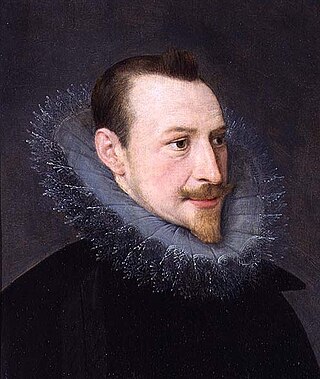Events
| | This section is empty. You can help by adding to it. (July 2010) |
| |||
|---|---|---|---|
| +... |
From your confessor, lawyer and physician,
Hide not your case on no conditionContents
— From Sir John Harington, A New Discourse of a Stale Subject, called the Metamorphosis of Ajax [1]
Nationality words link to articles with information on the nation's poetry or literature (for instance, Irish or France).
| | This section is empty. You can help by adding to it. (July 2010) |

Edmund Spenser was an English poet best known for The Faerie Queene, an epic poem and fantastical allegory celebrating the Tudor dynasty and Elizabeth I. He is recognized as one of the premier craftsmen of nascent Modern English verse, and he is considered one of the great poets in the English language.

The Faerie Queene is an English epic poem by Edmund Spenser. Books I–III were first published in 1590, then republished in 1596 together with books IV–VI. The Faerie Queene is notable for its form: at over 36,000 lines and over 4,000 stanzas, it is one of the longest poems in the English language; it is also the work in which Spenser invented the verse form known as the Spenserian stanza. On a literal level, the poem follows several knights as a means to examine different virtues, and though the text is primarily an allegorical work, it can be read on several levels of allegory, including as praise of Queen Elizabeth I. In Spenser's "Letter of the Authors", he states that the entire epic poem is "cloudily enwrapped in Allegorical devices", and that the aim of publishing The Faerie Queene was to "fashion a gentleman or noble person in virtuous and gentle discipline".

Sir John Harington, of Kelston, Somerset, England, but born in London, was an English courtier, author and translator popularly known as the inventor of the flush toilet. He became prominent at Queen Elizabeth I's court, and was known as her "saucy Godson", but his poetry and other writings caused him to fall in and out of favour with the Queen. He was the author of the description of a flush-toilet forerunner installed in his Kelston house appears in A New Discourse of a Stale Subject, called the Metamorphosis of Ajax (1596), a political allegory and coded attack on the monarchy, which is nowadays his best-known work.
Nationality words link to articles with information on the nation's poetry or literature.
Nationality words link to articles with information on the nation's poetry or literature.
Nationality words link to articles with information on the nation's poetry or literature.
Nationality words link to articles with information on the nation's poetry or literature.
Nationality words link to articles with information on the nation's poetry or literature.
Nationality words link to articles with information on the nation's poetry or literature.
Nationality words link to articles with information on the nation's poetry or literature.
Nationality words link to articles with information on the nation's poetry or literature.
Nationality words link to articles with information on the nation's poetry or literature.
Nationality words link to articles with information on the nation's poetry or literature.
Nationality words link to articles with information on the nation's poetry or literature.
Nationality words link to articles with information on the nation's poetry or literature.
Nationality words link to articles with information on the nation's poetry or literature.
Nationality words link to articles with information on the nation's poetry or literature.
Nationality words link to articles with information on the nation's poetry or literature.
Nationality words link to articles with information on the nation's poetry or literature.
Nationality words link to articles with information on the nation's poetry or literature.